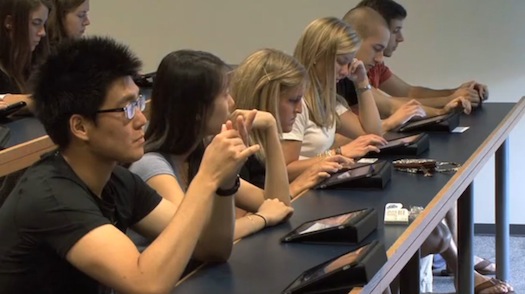How the use of technology is growing in education
18/07/2016 at 15:19 pmEducation has changed a lot over recent years, with new technology becoming readily available all the time there is always something new and exciting to try. Children these days are very accustom to using technology and probably do so on a daily basis. Whether it’s a smartphone, a tablet or any other kind of technology, this generation of children are being exposed to new technology like never before.
One of the main ways that technology has entered the classroom is from the use of tablets. Some schools loan out tablets to the students to aid their learning and education. Professor Corey Angst from the University of Notre Dame carried out a study where instead of telling the students to go and buy various books for the course, he loaned them an iPad each. The study was to see what would happen in and entirely paperless classroom. The initial reaction was very good from the students, who said that having the iPad helped them in classes because they could easily pull up information during class discussions. The iPads made the lessons more interesting and dynamic by giving the students access to a wide range of tools that made learning more interactive and interesting. Professor Angst surveyed the students after the study and the results showed that the vast majority of the students would prefer an iPad over a textbook in future classes.

The use of devices such as iPads and tablets can be especially effective in primary schools. There are endless games available on tablets that can help to aid learning, especially in subjects such as maths and English. These games help to personalise the learning as the games adjust the level of difficulty depending on how well the pupil is progressing. These games are also a lot more engaging than books which will keep the pupil interested for longer. David Vinca, the founder of eSpark learning says 'After school and weekend time can become effective learning time with the right technology'. This theory suggests that children may quite happily play maths or English games at home thus extending the school day. The use of tablets and computers in the classroom can also help teachers track the progress of each of their pupils. Certain apps can send information to the teacher summarising the tasks that a pupil has completed either in the lesson or at home.
The U.S department of education carried out a case study where they asked school administrators and teachers what they thought the benefits, if any, of having new technology in schools are. Many teachers in the case study believed that computer-based learning can provide support for the thinking process. Many of the respondents pointed out that that there are many opportunities to develop problem-solving skills from using computer-based technologies such as instructional software. Computers also help the user develop these skills from the problems that naturally occur when using computer tools. Many of the respondents mentioned that they, as educators, have a responsibility to prepare the pupils for the future. They foresaw a future that will be highly infused with technology so it is important to introduce this to the pupils early.
